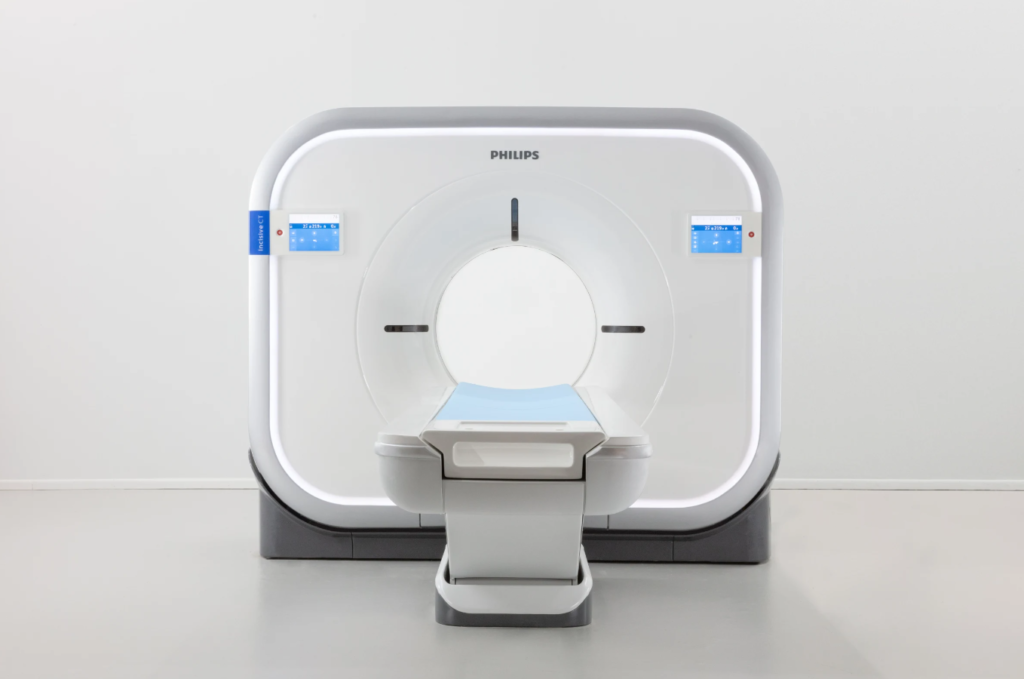CT, or Computed Tomography, is a diagnostic imaging technique that uses X-rays to create detailed cross-sectional images of the body. By taking multiple images from different angles and processing them with computer algorithms, CT scans provide a comprehensive view of internal structures, allowing for the accurate diagnosis of various medical conditions. This non-invasive procedure is commonly used to visualize the brain, chest, abdomen, and bones, aiding in the detection of diseases, injuries, and abnormalities.
The benefits of CT scans are vast. These scans offer high-resolution images that provide a clear and detailed view of internal organs and structures, making it easier for healthcare providers to detect and diagnose conditions such as tumors, infections, and blood clots. CT scans are quick and painless, often completed within a matter of minutes, reducing the time patients spend in the imaging center. Moreover, they are highly effective in guiding minimally invasive procedures like biopsies and drainages, enhancing both the accuracy and safety of these interventions.
The Philips Incisive CT machine represents a significant advancement in CT imaging technology. Designed with patient comfort and safety in mind, this machine offers low-dose radiation exposure without compromising image quality. The Incisive CT features advanced imaging capabilities, including high-resolution 3D reconstruction and enhanced image clarity, which enable precise and early diagnosis. Additionally, its user-friendly interface and efficient workflow streamline the imaging process, minimizing wait times and improving overall patient experience. With the Philips Incisive CT, imaging centers can deliver superior diagnostic services, ensuring the best possible outcomes for their patients.

